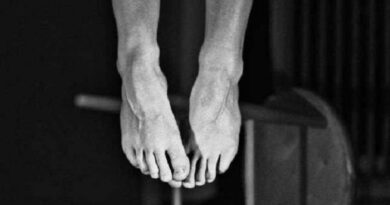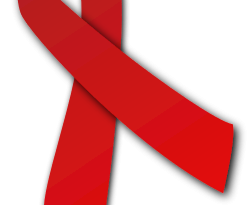Worrying rise in child cancer in Zim
THE number of children diagnosed with cancer in Zimbabwe is steadily rising, placing immense emotional and financial strain on families while exposing gaps in early detection and specialised treatment.
Once largely regarded as an adult condition, cancer is increasingly filling paediatric wards across the country.
According to the Zimbabwe National Cancer Registry, 263 cases were recorded among children aged 0 to 14 years in 2019, accounting for 13,7 percent of all cancers that year.
The most common were leukaemia (18 percent), renal tumours (13 percent), retinoblastoma (6 percent), lymphomas (13 percent) and central nervous system tumours (10 per-cent).
For families, the path to diagnosis is often long, uncertain and heartbreaking.
Mrs Charity Dhewa from Zaka still recalls the day her three-year-old son was diagnosed with Wilms tumour, a type of kidney cancer.
“He was staying with my mother at that time and I heard that he was not feeling well. Whenever he ate something, his stomach would start swelling and he was always weak, so I took him to the nearest clinic, but they could not determine what was wrong,” she said.
“I was referred to Masvingo Provincial Hospital, where a scan showed a lump in his kidney, but no one said it was cancer. They referred us to Parirenyatwa (Group of Hospitals), and that is where I was told the truth. My world crumbled. I thought, ‘this is the end for my baby’, and I cried for days.”
Coming from rural Zaka to Harare with no immediate family support, Mrs Dhewa faced crippling costs.
With help from KidzCan Zimbabwe, which provides accommodation, medication and psychosocial support, she has managed to focus on her son’s treatment.
“Staying here at KidzCan has reduced the cost of going back and forth from home.
“Some medications are provided through KidzCan and when they are not available, we sometimes buy. Other costs are covered by the Government under (the Department of) Social Welfare. I also got to speak with other mothers here who shared their journeys and gave me hope that my son would be fine,” she explained.
Her story mirrors that of Ms Nomathemba Ncube from Lupane, whose three-year-old grandson was diagnosed with kidney cancer in June.
“He was weak, not eating properly and in pain. When I visited his maternal grandmother, who was staying with him at the time, we felt a lump on his side. At the clinic, we were referred to Mpilo, then later to Parirenyatwa, where the diagnosis of cancer was confirmed,” she said.
For Ms Ncube, the news was devastating.
“I was expecting it to be a minor illness, not something this big. Not once did I think that he could have cancer. He was a fit child and never had problems,” she said.
She has, however, drawn strength from the progress her grandson has made since treatment began.
“He has recovered well, although not yet 100 percent. I want to encourage mothers and caregivers not to delay healthcare. Sometimes we think illnesses are caused by evil spirits and turn to traditional remedies, but that only delays treatment. Early hospital visits can save a child’s life,” she urged.
Late detection
Health experts warn that most childhood cancer cases in Zimbabwe are detected late, when treatment outcomes are poor.
Many children are misdiagnosed at primary health facilities or referred too late to specialists.
Globally, the World Health Organisation (WHO) estimates that around 400 000 children are diagnosed with cancer each year.
In high-income countries, survival rates exceed 80 percent.
But in low- and middle-income countries like Zimbabwe, survival rates often fall below 20 percent due to late diagnosis, drug shortages and inadequate specialised care.
September, marked globally as Childhood Cancer Awareness Month, has become a critical moment for the Government and organisations such as KidzCan Zimbabwe to raise awareness, mobilise resources and encourage families to seek early medical help.
KidzCan finance manager Mr Gift Marunda said awareness remains the biggest hurdle.
“Worldwide, the cancer burden is increasing, not just for adults but also for children. Most people do not know that children can get cancer, and as a result, it is often neglected,” he said.
“The challenge that we are having is that children are presenting to the hospitals very late and what that means is that the cost of treatment is high, the chances of survival low.
“That is why we emphasise early detection, early referral and early treatment. Once that is done, children can survive cancer,” he said.
Zimbabwe is part of the Global Initiative for Childhood Cancer (GICC), which aims to raise survival rates to at least 60 percent by 2030.
Through partnerships with Government and other stakeholders, KidzCan helps provide chemotherapy drugs, diagnostics and welfare support for families.
“We run awareness campaigns in communities and schools so that parents and teachers can recognise early signs. We also work with traditional leaders and faith groups, urging them not to keep sick children for too long before referral.
“Childhood cancer cannot be fought by one entity; it requires collaboration,” said Mr Marunda.
“We want to encourage other corporates to come on board and be part and parcel of KidzCan. We run a home here, where we make sure that children do get the necessary supports in between treatments.
“They don’t have to go back to their homes only to come back again after two or three weeks.”
For many families, the fight is not only against the disease but also against fear and misinformation.
As Zimbabwe strengthens its health systems, the voices of those affected serve as a reminder that childhood cancer is not just a medical condition but a social issue that demands collective action. Sunday Mail




